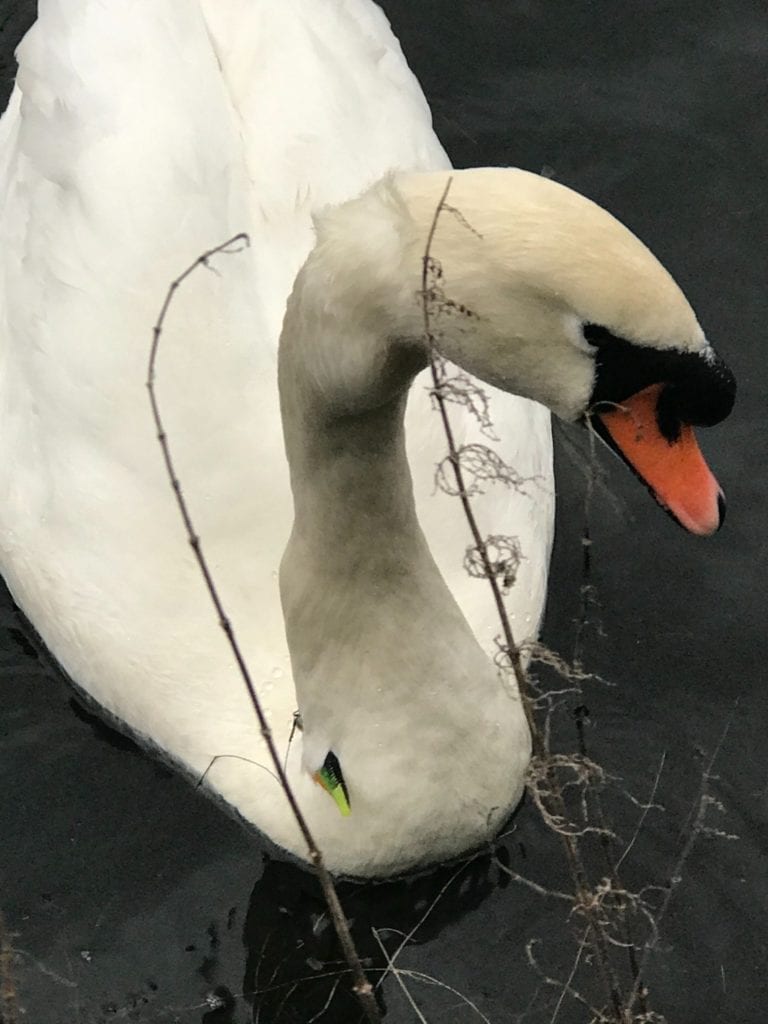A swan found with a large fishing hook lodged in his neck has been helped by the RSPCA.
The swan – who would have experienced considerable pain and discomfort from the hook – was spotted by a member of the public at Roath Park in Cardiff.


RSPCA inspector Gemma Black was assigned the call to track down the swan and successfully caught him safely on 30 October.
“Luckily I managed to catch him whilst on land and took him to the vets where the hook was removed and he was given an injection of antibiotics,” she said.
“As he didn’t have any other injuries or issues, I was able to take him back to the park and re-released him where he was collected. He swam off happily – which was lovely to see.”
It was only last week when RSPCA Cymru issued a reminder to anglers to remember to dispose of fishing litter properly as it can pose terrible dangers to wildlife.
A male mallard duck had become caught in a fishing line at Hendre Lake in Cardiff – which also followed a similar incident back in June where a fishing wire was found around a duck’s leg in the same lake.
Most anglers are very responsible when disposing of their litter, but it only takes one careless person to endanger the life of an animal.
The RSPCA asks all those who enjoy fishing to follow the Angling Trust’s Take 5 campaign and make use of the recycling scheme to dispose of their waste tackle and line.
Gemma added: “This is the second incident in a week where I have been called to help a wild bird who has been injured by fishing litter. It is just so sad and avoidable. Please take your litter home.”
Top tips for fishing litter include:
- Take unwanted fishing line home and recycle it at local tackle shops or fisheries, or via the Anglers National Line Recycling Scheme.
- Be aware of surrounding trees – discarded line caught in foliage causes problems for wildlife.
- Don’t leave bait unattended – always remove from it the hook and put it in a safe place.
- Use a bait box.
- Safely dispose of any litter you see, even if it’s not your own.
For more information about disposing of fishing litter properly please visit the RSPCA’s website here.







Leave a Reply
View Comments